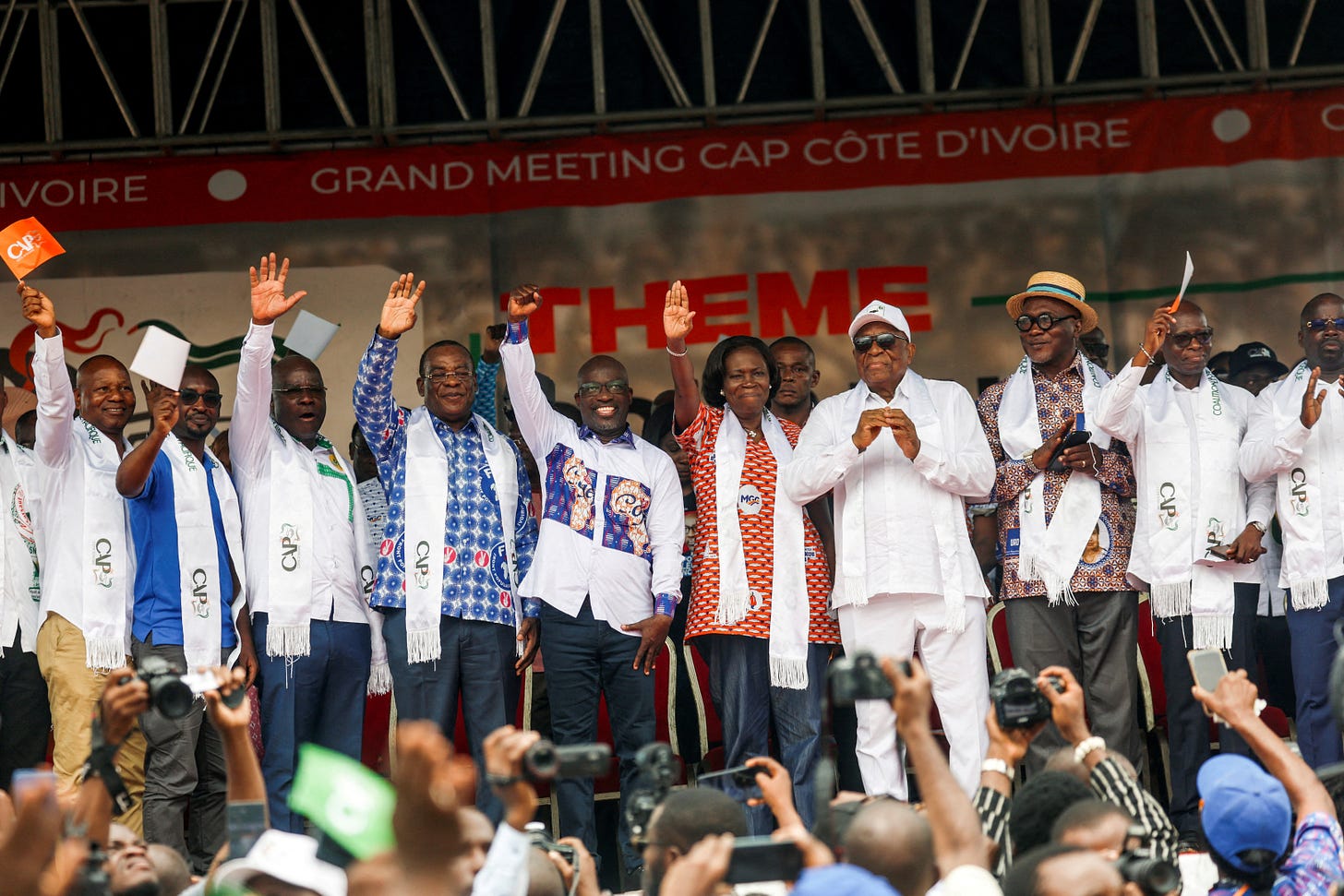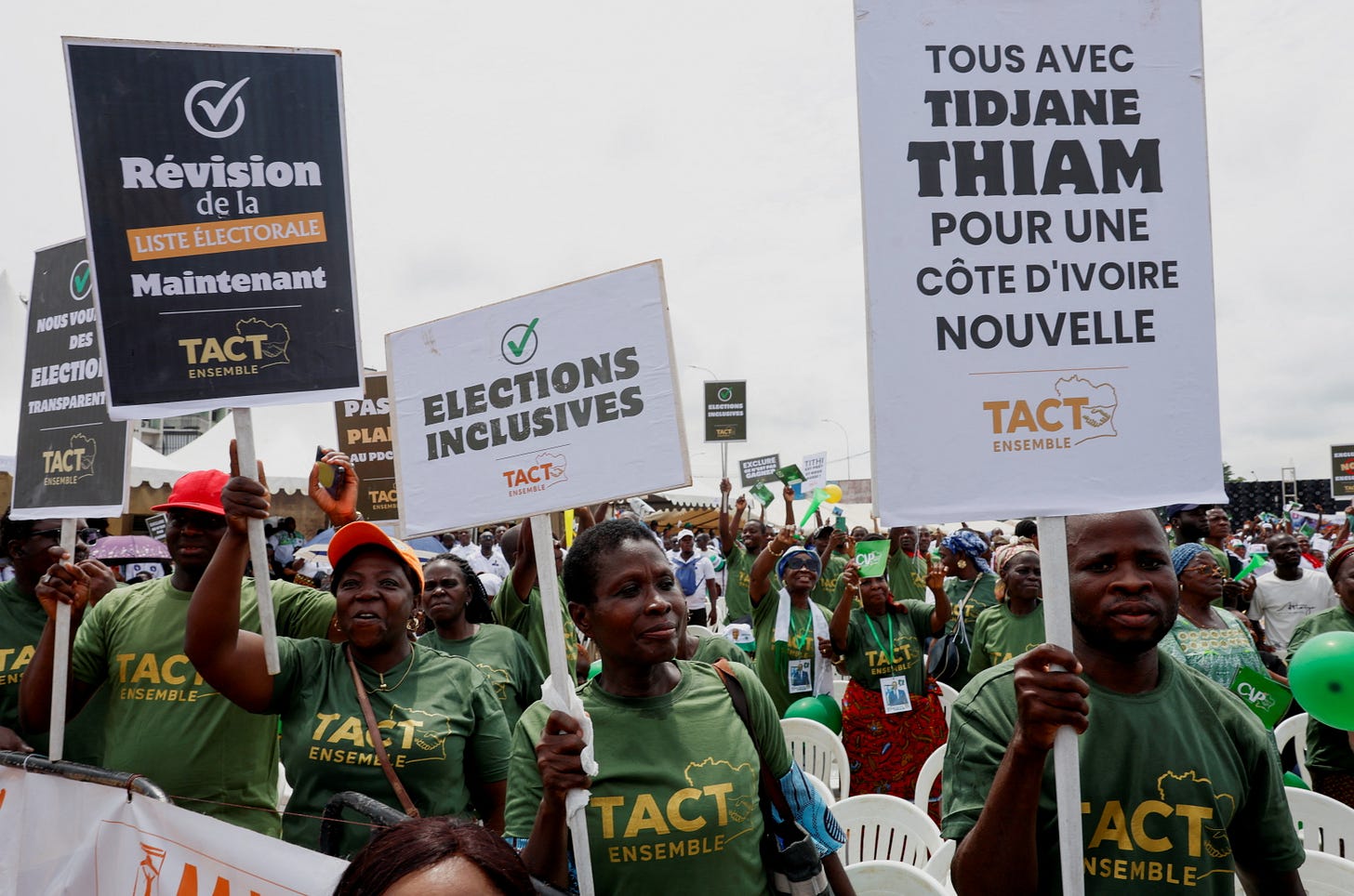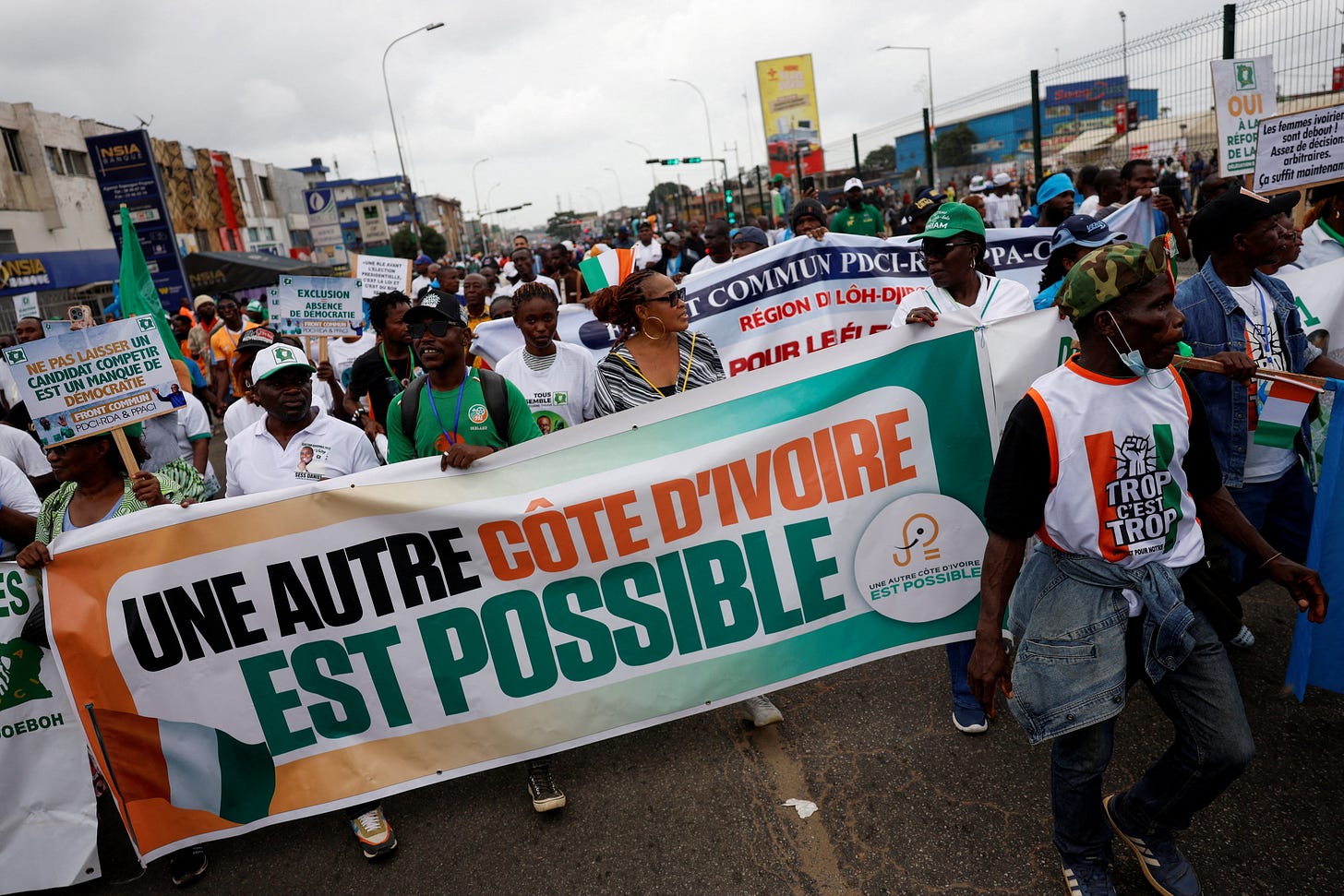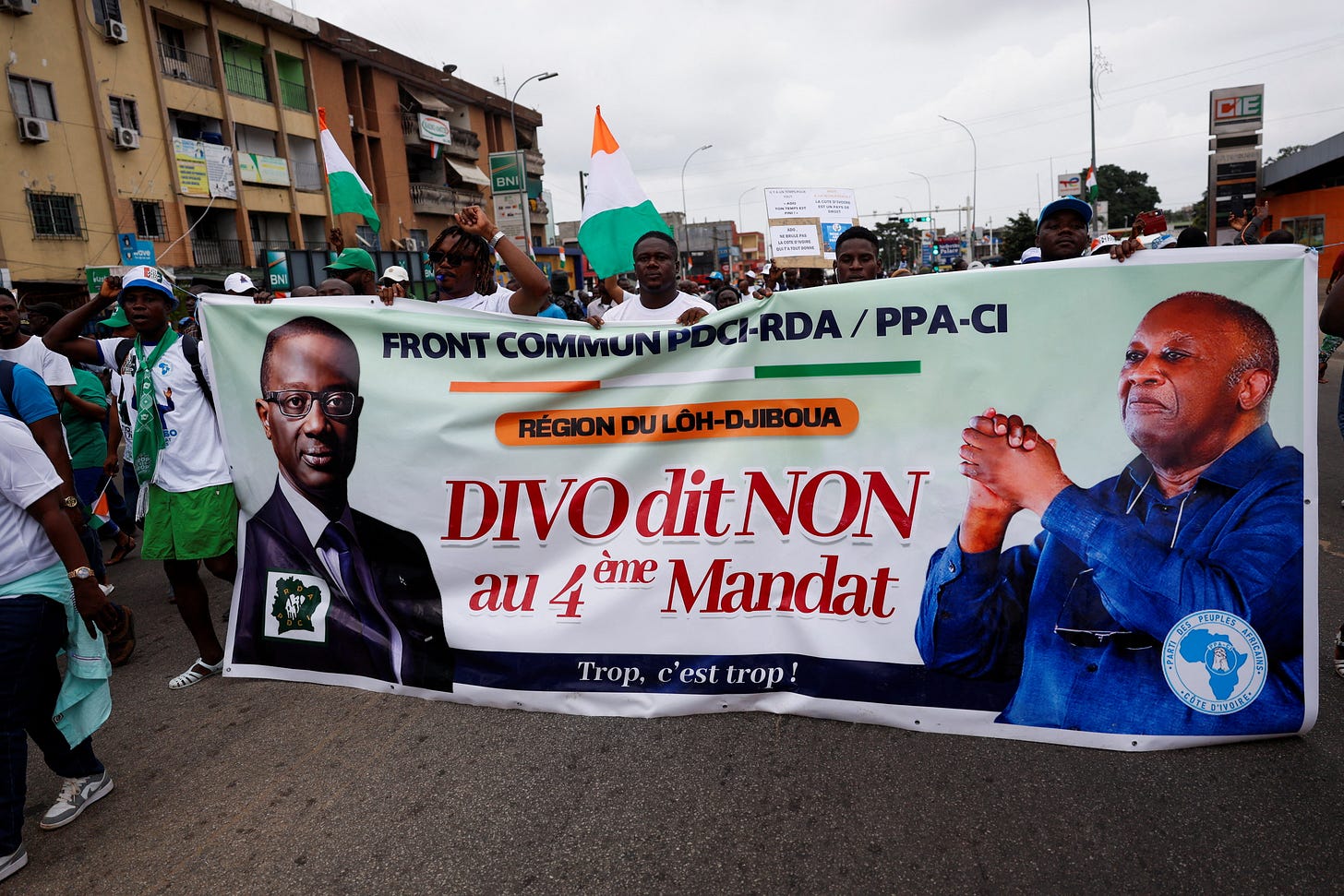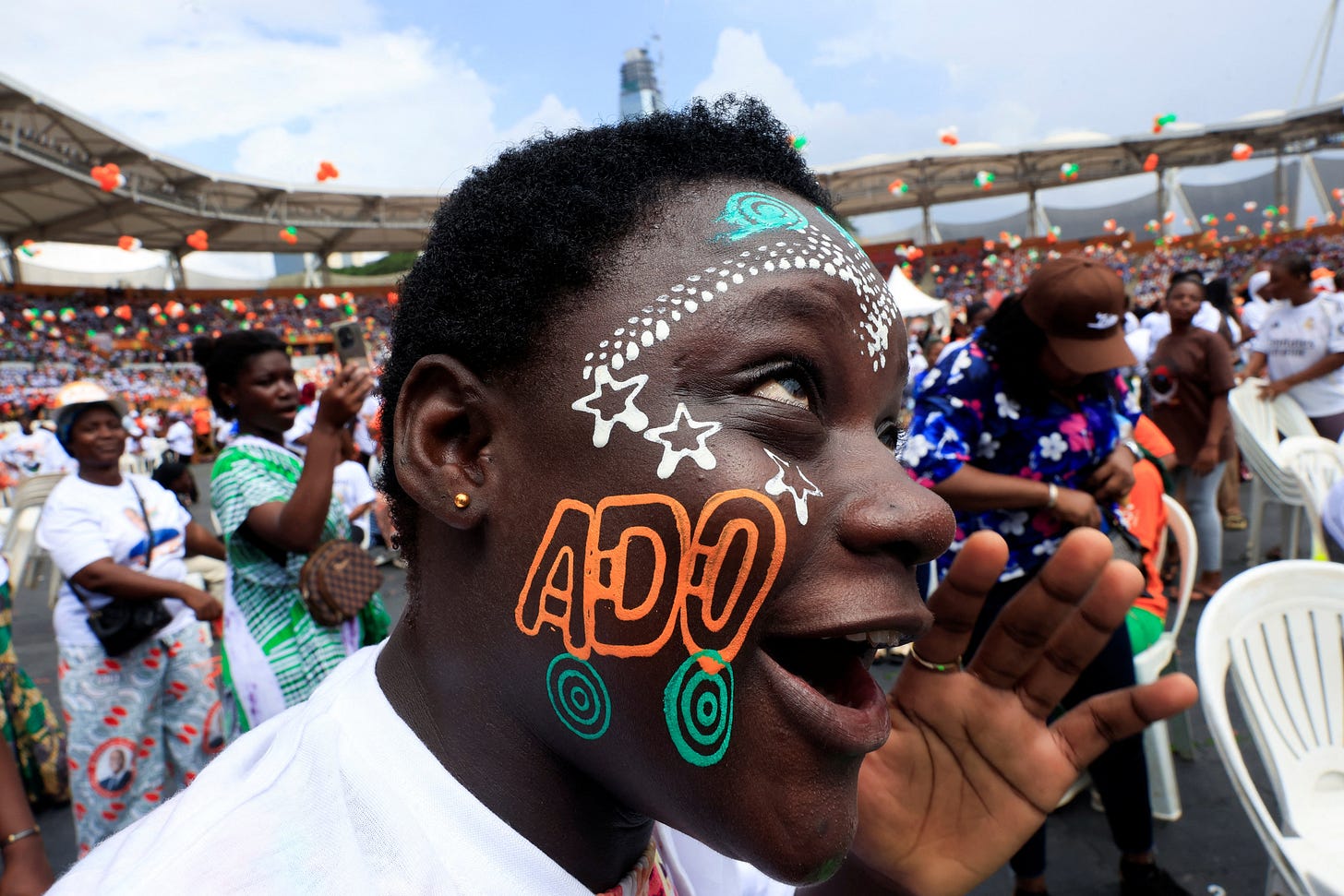Côte d’Ivoire’s Fourth Term Election Confirms the International Retreat from Defending Democracy in Africa
From GR-CI 2.0: Silence on Ouattara’s fourth term signals geopolitics over democracy.
By Fofana Kader Bakayoko
“Africa does not need ‘procedural democracy’ limited to cyclical elections; it needs substantive democracy grounded in constitutional respect, alternation, and institutional counterweights”.
Abidjan | October 22, 2025— Three days before the October 25, 2025, presidential election in Côte d’Ivoire, the world is witnessing a major democratic drift in deafening silence. The absence of a firm reaction from the international community to President Alassane Ouattara’s controversial fourth term and the exclusion of the main opposition candidates reveals a worrying paradigm shift: democracy in Africa is no longer a priority, but a negotiable option depending on the geopolitical interests of the moment.
A Dangerous Precedent Ignored by International Institutions
President Ouattara — brought to power in 2010 with massive international backing after a deadly post-electoral crisis — is now seeking a fourth term, a move widely described by jurists and opposition figures as contradicting the spirit of the 2016 constitution that he himself championed and which set a two-term limit.
Yet neither the UN, the European Union, nor ECOWAS has issued a clear public condemnation of this decision.
Meanwhile, the Constitutional Council has excluded four major opposition figures — Laurent Gbagbo (based on a criminal conviction still contested by his camp), Tidjane Thiam (for nationality issues he disputes), as well as Charles Blé Goudé and Guillaume Soro. For critics, these exclusions effectively predetermine the electoral outcome and strip the vote of credible competition.
The Hypocrisy of Double Standards
The contrast with other African situations is striking. When Madagascar experienced a forceful change of power in October 2025, UN Secretary-General António Guterres immediately denounced an “unconstitutional change”, and the African Union suspended the country. In the Ivorian case, by contrast, institutions have adopted a cautious and diplomatic tone, despite constitutional norms being challenged under the cover of formal legality.
The African Union, which sent a delegation led by Mahamat Saleh Annadif in June to “accompany” the electoral process, issued no substantive criticism. On the contrary, the mission congratulated President Ouattara “for all that he has done”. It limited itself to invoking stability — as if lasting stability could be built on the erosion of democratic rules.
Brutal Repression in General Indifference
The response to protests illustrates the authoritarian hardening. On October 11, a peaceful demonstration against the exclusion of opposition candidates was banned by the Abidjan prefect, then dispersed by force. According to figures published by the PPA-CI, 700 people were arrested. The party also claims that a baby under two years died from tear gas exposure — a claim authorities have not publicly addressed. In the following days, both a gendarme and a protester were killed in clashes.
Among international actors, Amnesty International issued one of the few explicit condemnations, urging the release of detainees and recalling Côte d’Ivoire’s obligations under the International Covenant on Civil and Political Rights. The UN, through its Special Representative Leonardo Santos Simão, merely called for “dialogue,” without naming or condemning the violations reported.
The General Decline of Democratic Values
The Ivorian case fits within a wider continental trend. According to the International Institute for Democracy and Electoral Assistance, 45 countries worldwide — including many in Africa — are in the process of autocratization. In sub-Saharan Africa, 23 of 49 states are now considered “democracies in decline”: regimes preserving electoral appearances while neutralizing alternation and dissent.
Leaders such as Paul Biya in Cameroon, Teodoro Obiang in Equatorial Guinea, or Yoweri Museveni in Uganda have remained in power for decades without significant international pushback. This indulgence toward “constitutional coups” — legal adjustments used to bypass term limits — contrasts sharply with the firmness displayed against military coups.
The Reasons for Calculated Silence
This indulgence is not accidental. Côte d’Ivoire remains a strategic partner of France and the European Union in a Sahelian region where several states (Mali, Burkina Faso, Niger) have turned to Russia. As the AU envoy remarked during his visit, “If Côte d’Ivoire sneezes, the region catches a cold.” Geopolitical stability, it appears, now outweighs democratic principles.
Thus, despite mounting criticism, the Ivorian leadership continues to benefit from muted international reactions. Brought to power in 2010 with strong external support, President Ouattara now displays what several analysts describe as “contempt for international rulings and norms once they no longer serve his political calculus.”
A Disastrous Precedent for the Future
The Ivorian precedent sends a dangerous message: democratic norms apply only when they align with major powers’ interests. A leader can override constitutional safeguards, eliminate main contenders, and repress peaceful gatherings, provided he remains a reliable security partner and maintains a facade of legality.
This diplomacy of double standards undermines the credibility of the very institutions tasked with defending democracy and the rule of law. It fuels a growing sense of impunity and entrenches the idea that leaders may rewrite the rules at will. As one analyst warned, “The UN cannot be a tribunal of hindsight — it must be a consistent and preventive actor.”
The Urgency of Restoring Consistency
Africa does not need “procedural democracy” limited to cyclical elections; it needs substantive democracy grounded in constitutional respect, alternation, and institutional counterweights. That requires continuous monitoring of democratic processes and firm support to civil society, independent media, and oversight bodies.
The Ivorian moment reveals the magnitude of the challenge. If the international community does not quickly restore coherence in defending democratic principles, it will deepen the feeling of abandonment already weakening African people’s trust in global institutions. The recent history of Côte d’Ivoire — where no presidential election since 1995 has produced a peaceful alternation — stands as a warning of what happens when democracy is eroded with impunity.
The current international silence in the face of democratic backsliding in Côte d’Ivoire bodes ill for the continent. It seals the abandonment of the principles that framed the democratic transitions of the 1990s and risks inaugurating a new era in which authoritarian stability is valued more highly than democratic legitimacy.



